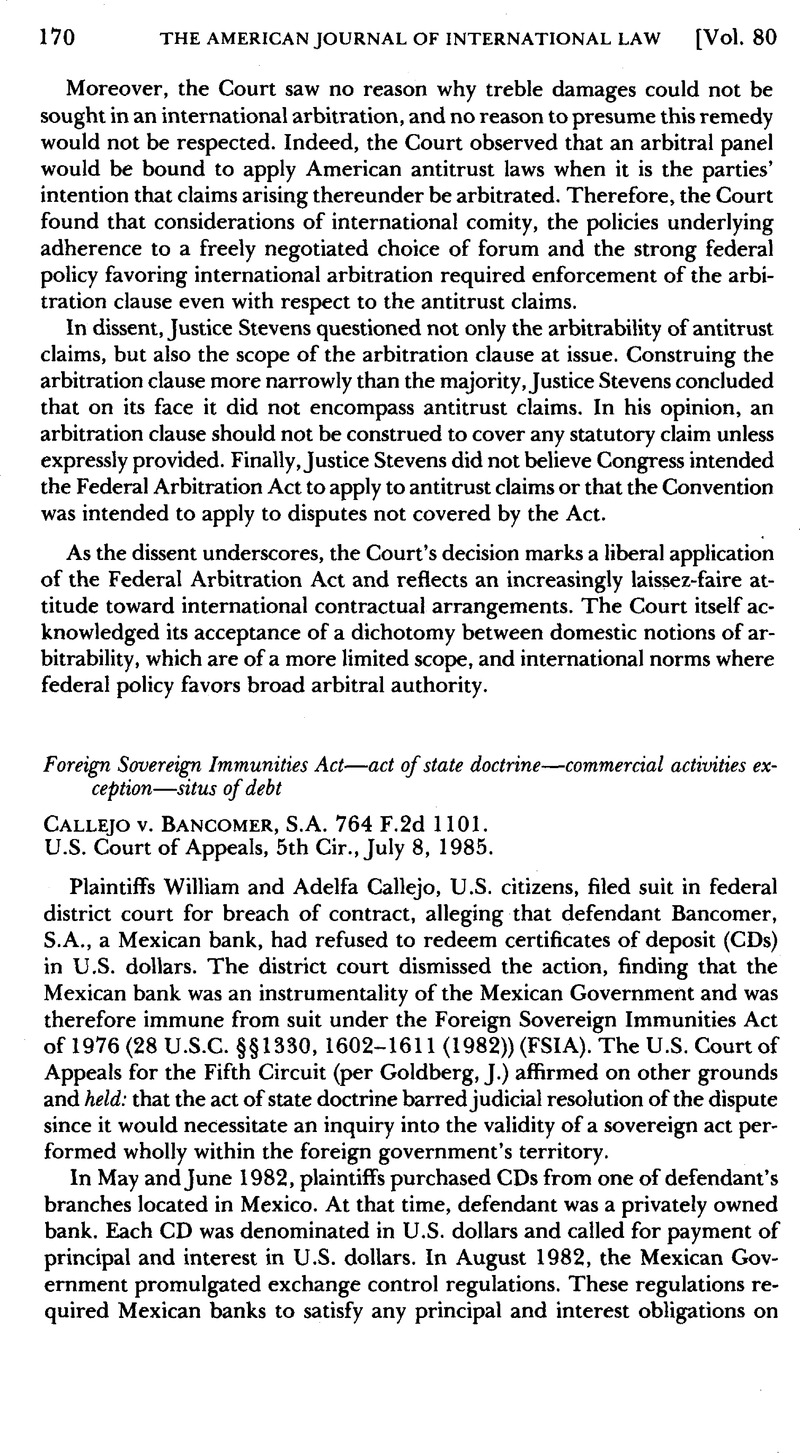No CrossRef data available.
Published online by Cambridge University Press: 27 February 2017

1 376 U.S. 398, 428 (1964).
2 425 U.S. 682, 695 (1976).
3 764 F.2d 1101, 1116. The court also rejected plaintiffs’ claim that Mexico had violated the exchange control regulations of the International Monetary Fund, Dec. 17, 1945, 60 Stat. 1401, TIAS No. 1501, Art. VIII(2)(a), as amended, Apr. 30, 1976, 29 UST 2203, TIAS No. 8937 (IMF Agreement), thereby bringing their claim within a so-called treaty exception to the act of state doctrine. Article VIII(2)(a) forbids members of the IMF from imposing exchange control regulations on “current”—as opposed to “capital”—international transactions without prior IMF approval. The court, treating this argument as one of first impression, refused to interpret the IMF Agreement or find a violation, noting that the IMF Legal Department had notified defendant’s counsel that the Mexican regulations did not violate the IMF Agreement.
4 764 F.2d at 1124.
5 See, e.g., Braka v. Nacional Financiera, No. 83–4161 (S.D.N.Y.July 9, 1984) (case dismissed on sovereign immunity grounds); Frankel v. Banco Nacional de Mexico, No. 82–6457 (S.D.N.Y. May 31, 1983) (sovereign immunity dismissal); Braka v. Bancomer, S.A., 589 F.Supp. 1465 (S.D.N.Y. 1984), aff’d, 762 F.2d 222 (2d Cir. 1985), summarized in 79 AJIL 1054 (1985) (act of state dismissal); Braka v. Multibanco Comermex, 589 F.Supp. 802 (S.D.N.Y. 1984) (act of state dismissal).